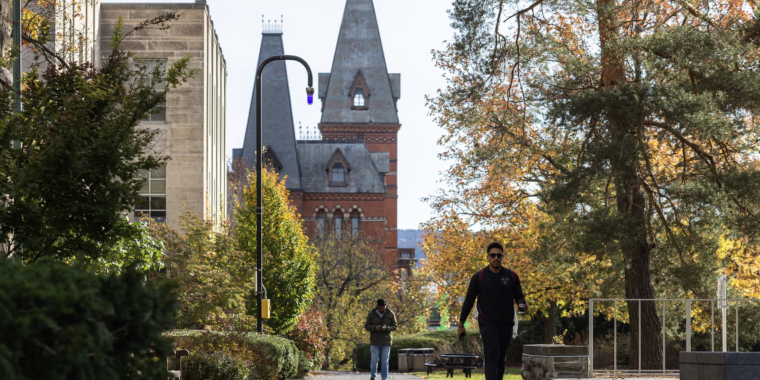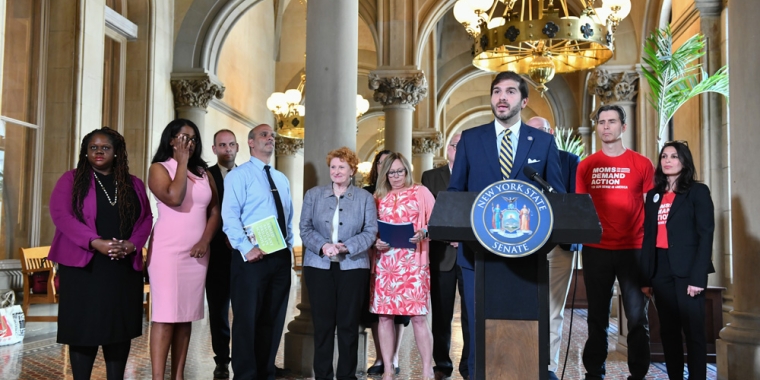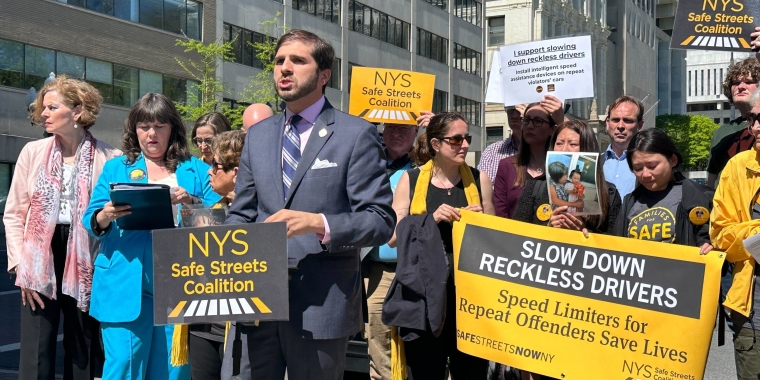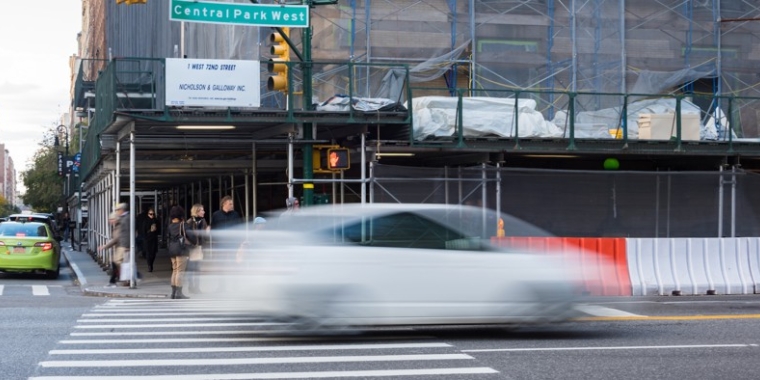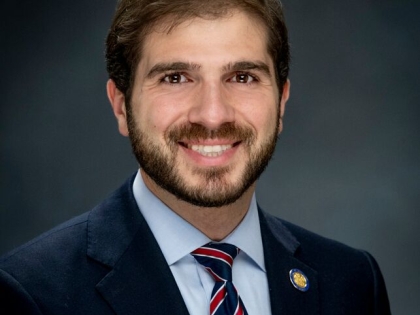
Senator Gounardes Talks About His "Faith-Based Affordable Housing Act" with City Limits
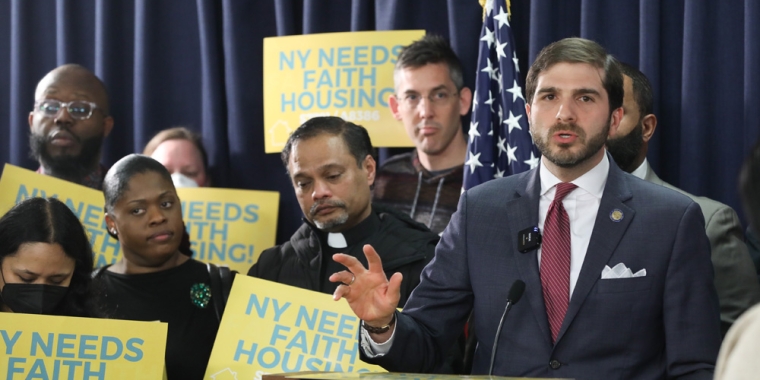
While Albany lawmakers continue to debate development incentives and tenant protections in Albany, supporters of the Faith-Based Affordable Housing Act are positioning the bill as one of the state’s best shots at passing meaningful housing legislation this year.
Proposed in December by State Sen. Andrew Gounardes, the legislation would make it easier for religious organizations to build affordable housing on their properties, essentially becoming landlords.
And while not as far-reaching as other housing-related proposals being haggled in Albany—and a year after Gov. Kathy Hochul’s mandated development proposal fizzled out—supporters of the FBAHA hope it will prove a less divisive option to spur new homes across the state.
“I think a lot of people were skittish about the notion of trying to do everything in one big grand slam swing,” Gounardes told City Limits. “So we’ve taken a bit of a different approach. We think that starting with faith-based institutions, which are obviously trusted partners and communities, trusted institutions, and allowing them to make it easier to do what they want to do, which is to help create housing for people, was a much lower barrier to entry.”
The concept is not unfamiliar to Gounardes: in fact, a similar faith-based housing initiative was a priority during Mayor Eric Adams’ tenure as Brooklyn borough president, a time when Gounardes served as his counsel.
Largely modeled on the successes of California’s Affordable Housing on Faith Lands Act, which eased the zoning red tape for faith-based organizations and nonprofit universities (excluded from New York’s version), the bill would help create substantial affordable housing on what is typically untaxed land.
If passed, it would allow religious institutions like temples, churches, mosques, and synagogues “to bypass local zoning laws that restrict their ability to develop their land,” as long as that new development includes affordable housing. In areas with fewer than 1 million inhabitants, 20 percent of constructed or converted residences under the law must be allocated for households earning 80 percent of the Area Median Income (AMI).
In cities with 1 million or more residents like New York, residential buildings must adhere to one of three options: allocate 25 percent of floor area for households earning 60 percent of the AMI—equivalent to $84,720 for a four-person household—with at least 5 percent of units affordable to those at 40 percent of the AMI. Alternative options would require 30 percent of floor area for households earning 80 percent of the AMI, or 20 percent of floor area for households earning 40 percent of AMI, the bill states.
So far, the legislation has 18 co-sponsors in the Assembly and 11 in the State Senate, including progressive democrats such as State Sen. Julia Salazar and Assemblymember Emily Gallagher. It’s also earned the support of Queens State Sen. Leroy Comrie, who last year was among those opposed to Gov. Hochul’s housing plan and was a vocal critic of efforts to legalize basement apartments. Both the Senate and Assembly housing chairs, State Sen. Brian Kavanagh and Assemblymember Linda Rosenthal, have signed on as well.
“We’ve just been constantly talking to folks little by little, and building up quiet support, because it’s hard to object if a church says, ‘Hey, we have a parking lot, or we have an unused rectory or an unused school building or some other type of asset that we have no use for anymore. We want to turn it into housing,’” said Gounardes. “It’s hard to put your guard up when it’s the neighborhood church saying we want to build affordable housing.”
According to a recent Pew Research report, 75 percent of New Yorkers support a form of faith-based housing.
